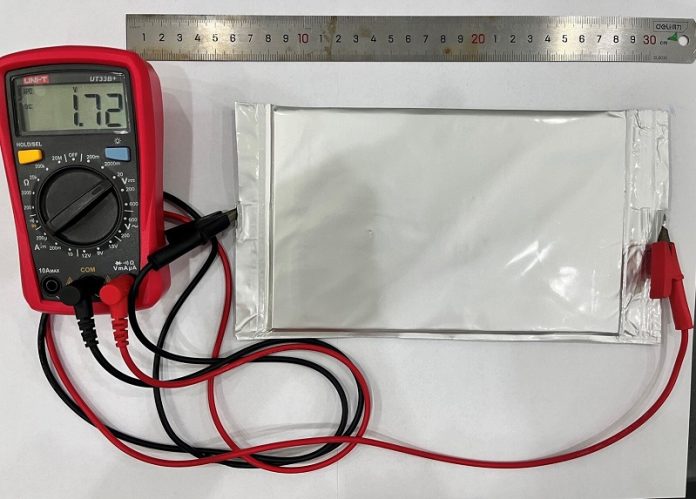
Large batteries are essential for storing solar and wind power, helping integrate renewable energy into the power grid.
However, finding safe, reliable, and eco-friendly battery technologies has been a challenge.
Now, researchers have developed a new aluminum-ion (Al-ion) battery that is cost-effective, environmentally friendly, and capable of lasting 10,000 cycles with minimal performance loss.
Lithium-ion (Li-ion) batteries are commonly used in devices like electric vehicles and power tools due to their high energy density.
However, they are not ideal for large-scale energy storage. Lithium is expensive, and Li-ion batteries can pose safety risks because they are flammable.
Aluminum-ion batteries are a promising alternative for long-term energy storage. However, their most common electrolyte, liquid aluminum chloride, has significant drawbacks. It corrodes the aluminum anode, is very sensitive to moisture, and leads to poor battery stability and performance over time.
To solve these issues, researchers led by Wei Wang and Shuqiang Jiao developed a solid-state aluminum-ion battery.
They added an aluminum fluoride salt to the battery’s electrolyte, turning it into a solid-state version.
This salt has a special 3D porous structure, which allows aluminum ions to move easily, improving conductivity.
Additionally, they used fluoroethylene carbonate as an additive to form a protective coating on the battery’s electrodes. This coating prevents the formation of damaging aluminum crystals that reduce the battery’s lifespan.
The result was a battery with impressive durability and safety. It could withstand sharp impacts and temperatures up to 392°F without losing stability.
Most importantly, the battery lasted for 10,000 charge-discharge cycles, retaining more than 99% of its original capacity.
The researchers also found that the aluminum fluoride salt could be recovered with a simple wash and reused in new batteries, making the technology more sustainable.
“This new aluminum-ion battery design offers a safe, long-lasting, and cost-effective solution for energy storage,” said Wang. “The ability to recycle key materials makes it even more sustainable.”
While this battery shows great potential, the researchers note that further improvements in energy density and lifespan are needed before it can be commercialized. If successful, this technology could revolutionize the way we store renewable energy and support a cleaner, greener future.



